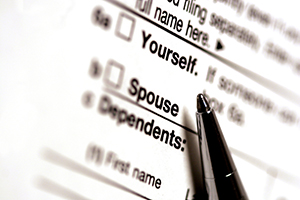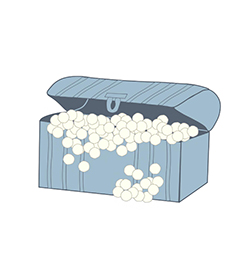
Getting a Jump on Tax Season
What should you bring to your preparer?
You can file your 2017 federal tax return starting January 23 of 2018. IRS filing season will start right on time, and there is wisdom in filing your 1040 well before the 2018 deadline of April 18. You can get it out of the way earlier, and if you e-file, you can put yourself in position for an earlier refund.1
What should you gather up for your CPA?
If you want to save time and possibly money along with it, come to your preparer’s office ready with the appropriate paperwork. If you own a business, that list includes all W-2s and 1099-MISC forms you get from clients, any 1099-INT and K-1 forms displaying interest income, your Schedule C and P&L reports, and any and all paperwork you can round up detailing your expenses – your personal expenses too, not only business costs but also any tuition, medical and miscellaneous ones. If you have made charitable contributions worth itemizing, that paperwork needs to reach your preparer. The same goes for documents detailing mortgage interest, other forms of interest paid, and any tax already paid.2
If you have receipt management software, your CPA will love you for using it (beats getting a manila envelope, file folder or shoebox full of receipts to sort through). If a calamity or an accident destroyed a bunch of your business records, remember that the IRS may give you a break – but your CPA needs solid proof of the misfortune to try and make a case to the IRS and get you some leniency.
Some things people too often forget to bring: Social Security numbers for new babies (and taxpayer-ID numbers and contact information for the nannies of those babies). Logs of unreimbursed mileage. Real estate stuff, too: closing letters related to a refi, receipts for real estate taxes (assuming they haven’t been paid through escrow). 3
If you received any health insurance subsidies, you may want to wait until February.
Did you pay for your own health insurance this year? You may have had to estimate your income when you applied for a subsidy. It was based on that estimate, and an estimate is by definition inexact. Some taxpayers ended up earning more than their estimated incomes, some less. That could mean one of two things: a big tax refund, or owing thousands more in taxes.4
If you pay for your own health coverage, the exchange at which you bought it should send you Form 1095-A by January 31. Form 1095-A will list how your household self-insures: who pays premiums, and the amount of any monthly subsidies. Your CPA can plug these details into Form 8962, which explains the breakdown on insurance, subsidies and income for your household to the IRS. If you were only self-insured for part of the year, your CPA must note any subsidy payments by the month.4
Should you switch from your current CPA? If he or she is aloof, sloppy, or seems more like a file clerk than someone interested in minimizing your tax burden, maybe you should switch. Timing is critical as there are some tax preparers who outsource their work to people overseas - to prevent anything from happening to your return, make sure the switch happens well before tax season. If you really have the itch to switch, consider taking return from the last couple years to 2-3 candidates – not only to get a tax prep quote, but to see if they have insight on your situation that your current preparer lacks. 5
In getting a jump on tax season, you can get that bothersome item off your to-do list sooner and focus on the more exciting parts of your career, business or life.
Citations.
1 - www.irs.gov/newsroom/2017-tax-filing-season-begins-jan-23-for-nations-taxpayers-with-tax-returns-due-april-18
2 - outright.com/blog/what-do-you-need-to-bring-to-your-accountant-at-tax-time/
3 - foxbusiness.com/personal-finance/2014/03/18/what-documents-should-take-to-tax-preparer/
4 - money.cnn.com/2015/01/02/pf/taxes/obamacare-income-tax-subsidies/
5 - dailyfinance.com/2014/12/25/hire-cpa-prepare-taxes/








